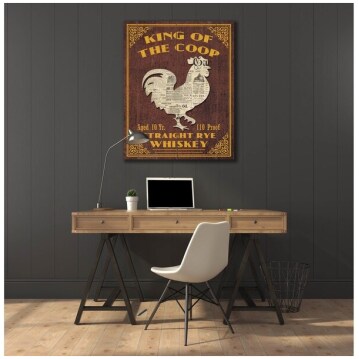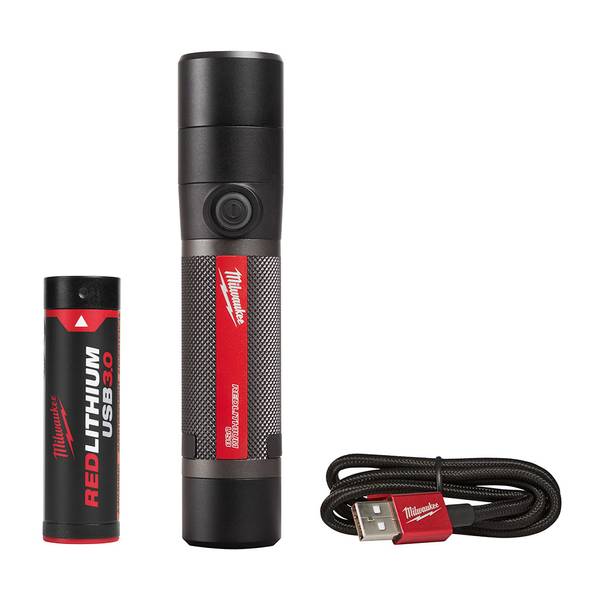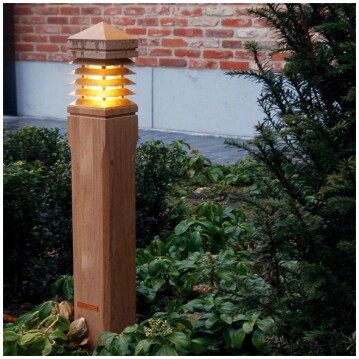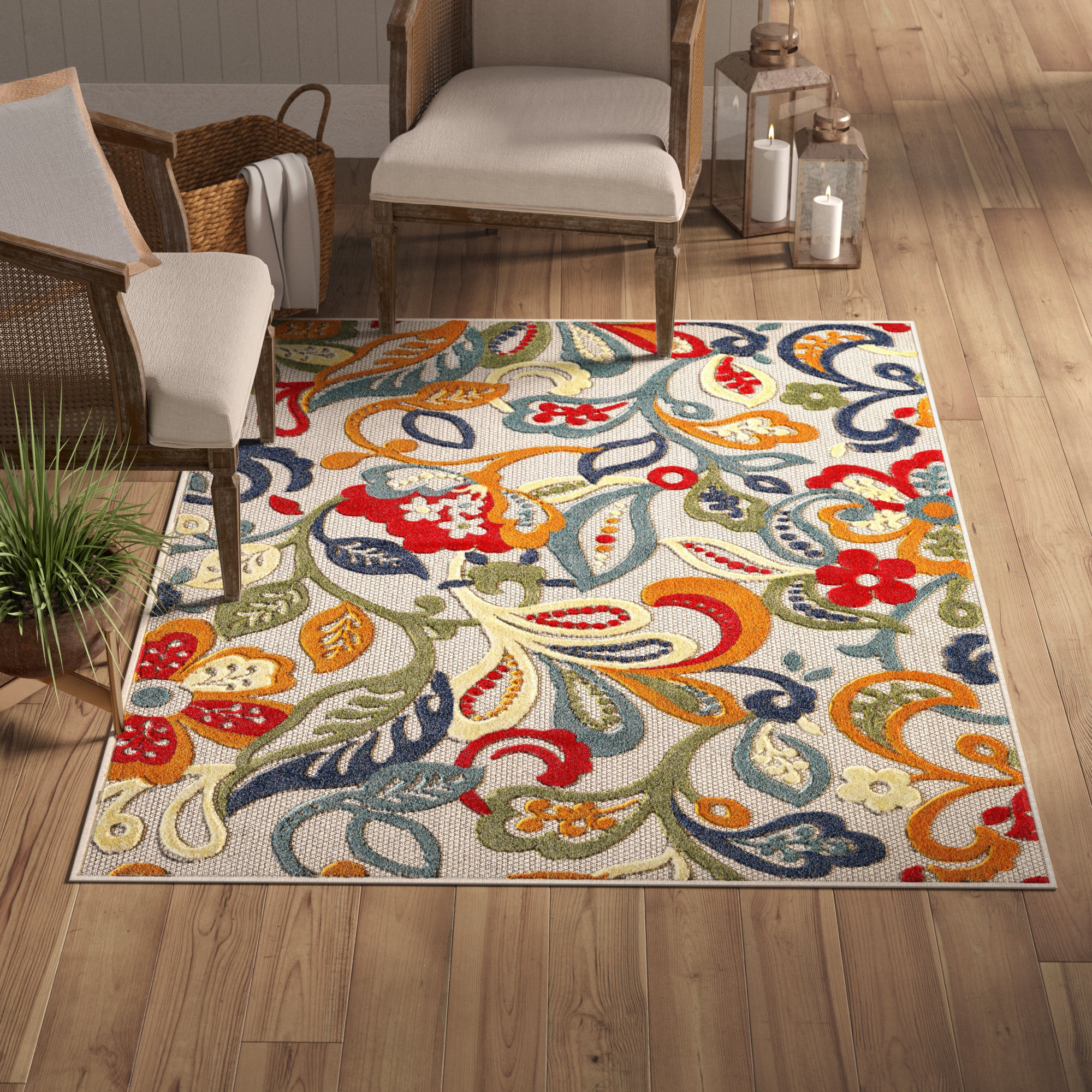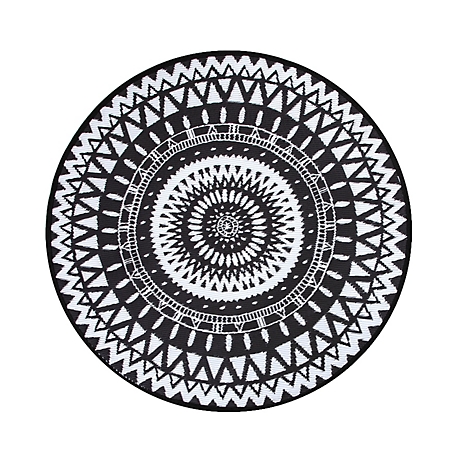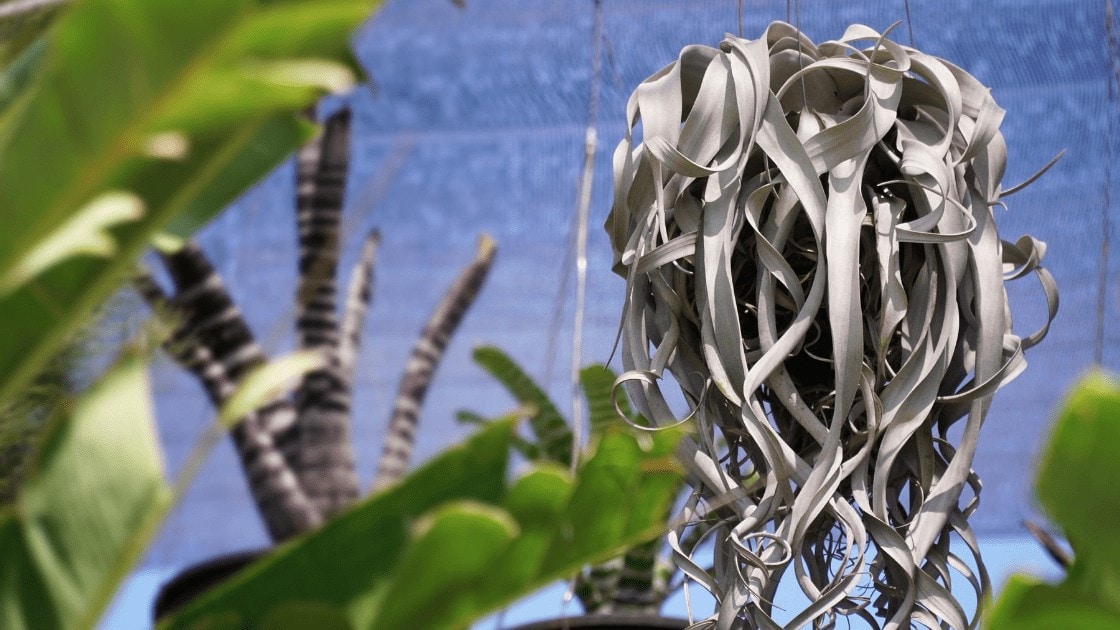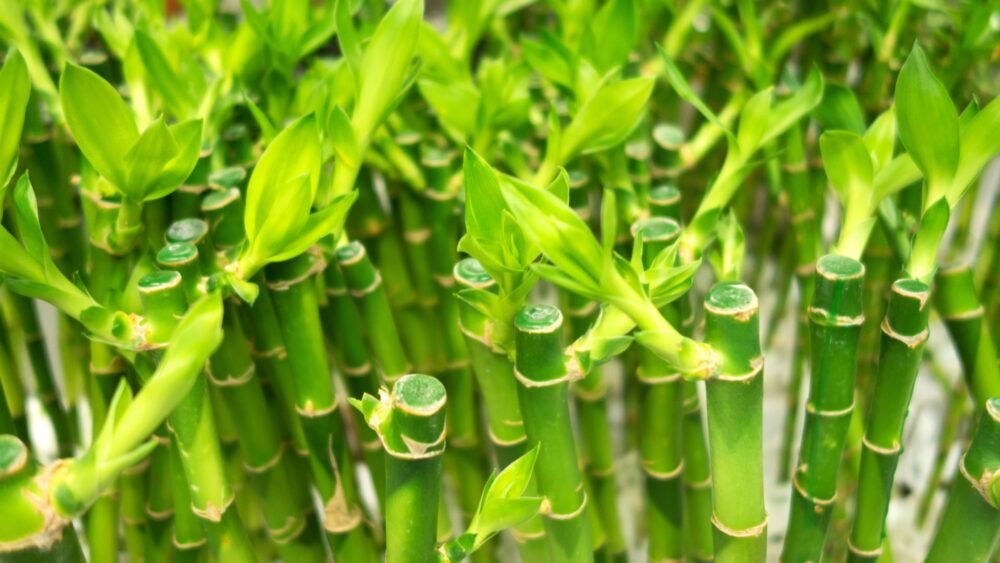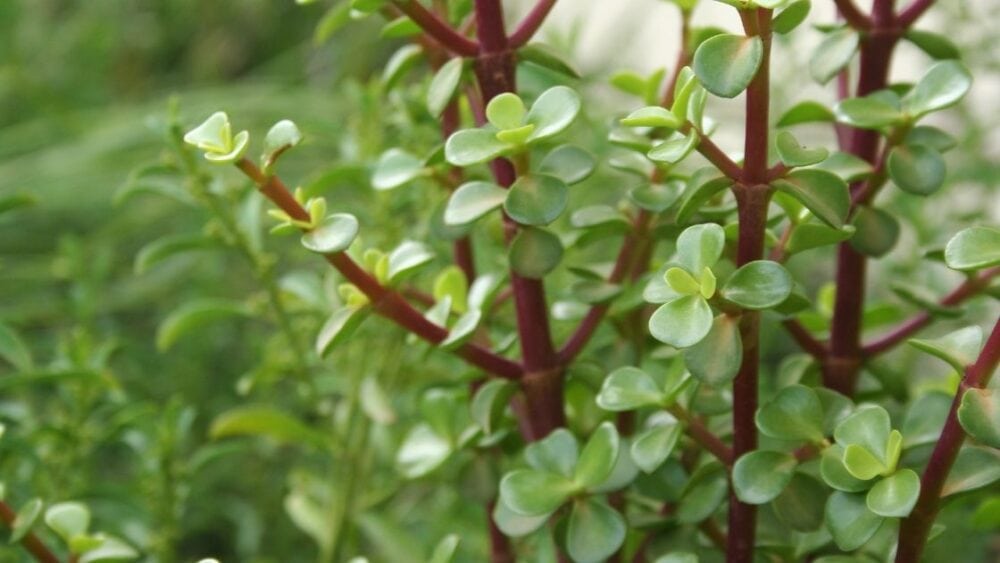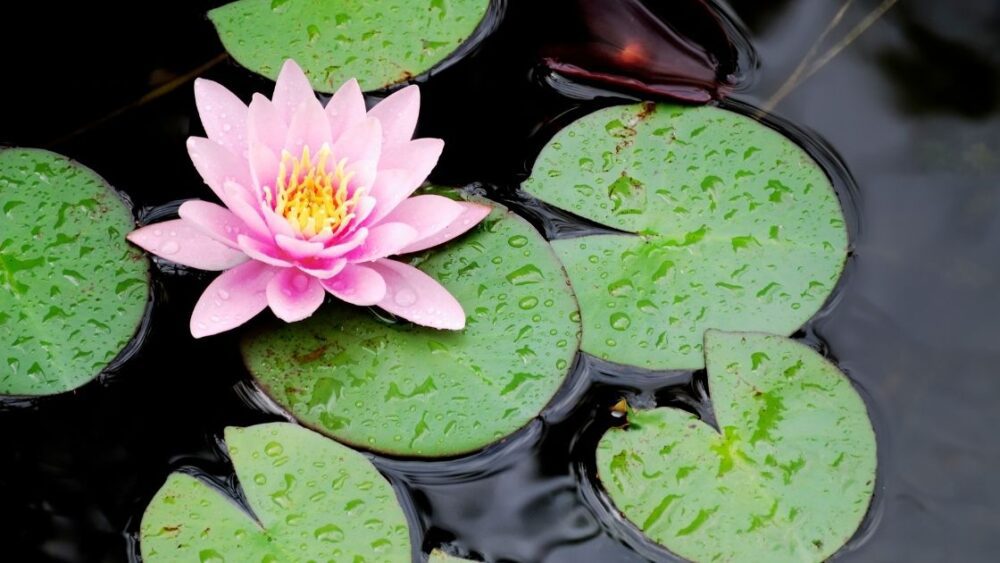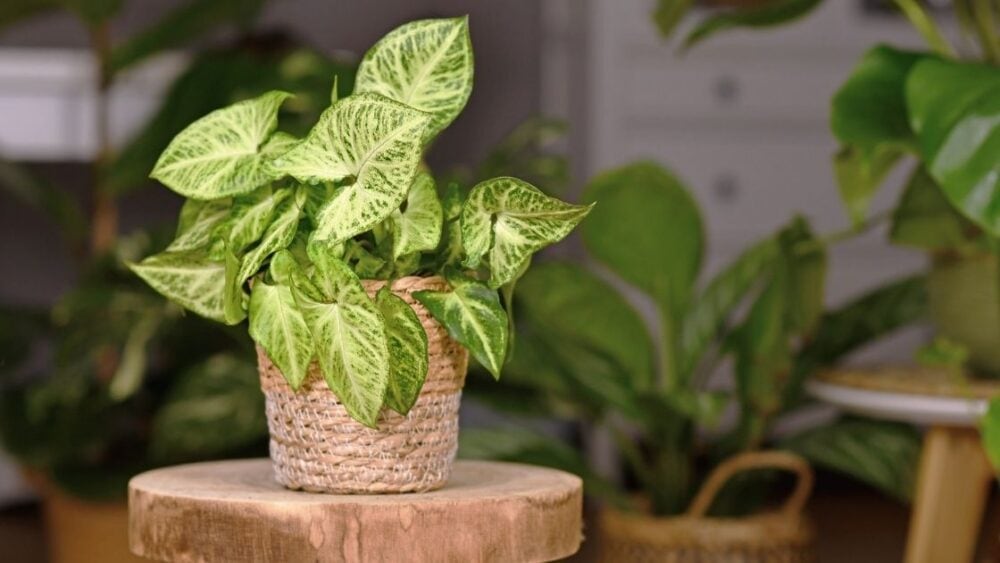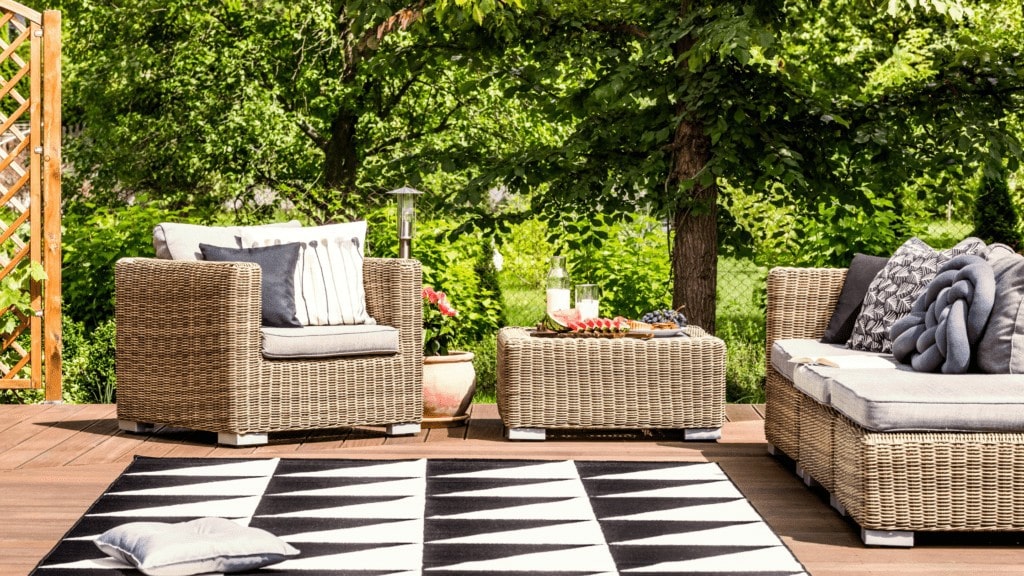
Outdoor rugs can be a great addition to any patio, porch or balcony – not only do they serve an important visual purpose and make the space more comfortable, inviting and visually-pleasing, but they also protect the expensive flooring material from scratches and stains.
However, they are certainly not a must-have. some people prefer the simplicity of a plain hard floor. There can also be several possible drawbacks to having an outdoor rug – it can complicate the cleaning process a bit and obviously requires an additional money spend. But in most cases, outdoor rugs are a great idea and after getting one, the only regret you’ll have is that you didn’t buy it sooner!
Now let’s go deeper and explore all the advantages that outdoor rugs can offer. Later, we’ll also discuss different synthetic and natural materials which are commonly used for outdoor rugs, as well as additional factors to consider, like what size rug to get and how to chose the most suitable weave.
Browse our Affiliate Products
We’ll also go over some possible disadvantages and problems that can be caused by choosing a rug that is not suitable for your particular weather conditions.
What Advantages Do Outdoor Rugs Offer And Why Get One?
Here are a few of the reasons why outdoor rugs are an excellent idea for every outdoor space:
Rugs Improve The Look of Your Outdoor Area
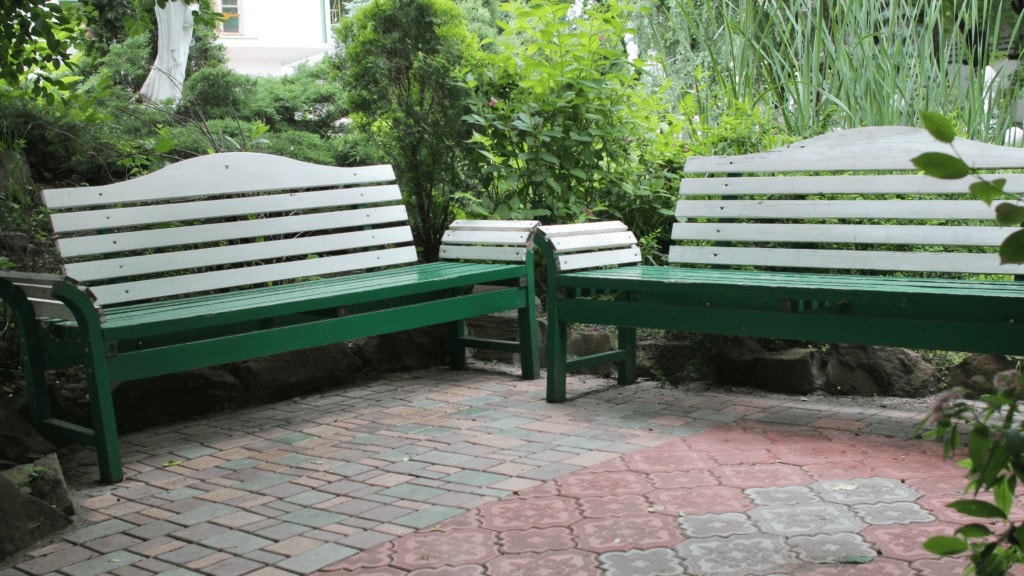
As any interior designer will tell you, carpets are one of the most important visual elements when it comes to the aesthetics of an indoor space. This obviously also applies to an outdoor area, like a patio or a porch. It can be difficult to explain the exact reasons why a piece of fabric laid on the floor makes a space more visually-pleasing, but it has a lot to do with the regular shape of the rug creating its own little area of comfort.
Interior designers will sometimes say that a properly selected carpet compliments the look of a room in the same way that a properly chosen pair of shoes compliments an outfit. This is true not only for a room, but for an outdoor area as well.
Rugs Increase Floor Comfort and Protect The Flooring Material
This is an obvious one – rugs create a softer, warmer feel and can make barefoot walking comfortable even in a cold morning. Not only does the cushioning effect of the rug protect the floor from scratches, but it also eliminates the noises generated by hard shoe soles hitting the resonating wood flooring of a patio. The noise of chair legs dragging across the wooden floor can be particularly annoying and is also eliminated by the rug.
Outdoor Rugs Can Be Cheap
An obvious argument for getting an outdoor rug is that it doesn’t really raise the budget for the whole outdoor area all that much. With the wide availability of rugs made out of affordable, recycled materials, you can easily find a suitable outdoor rug that will only add as little as 1% to the total price of the patio. Rugs for balconies and porches are smaller and can be purchased for less than $50.
To view our wide selection of affiliate outdoor rug products, check out our rug category: Indoor/Outdoor Area Rugs
Amazon has some good offers on area outdoor rugs as seen below.
Things to Consider When Choosing an Outdoor Rug
As is the case with any purchase, the more information you gather, the harder it can be to actually decide on a particular product. You may want to just select a suitable rug based on its description and reviews, without getting overly concerned with all the tiny details. Still, it’s important to take a few basic factors into consideration to make sure that you don’t run into mold or staining problems. Here are a few of those factors:
Materials
Outdoor rugs come in a variety of both synthetic and natural materials. Generally, synthetic rugs offer more durability and are cheaper and easier to clean. Controversially, because synthetic rugs are made out of recycled materials like polypropylene, they may also be a good choice for people concerned with the environment, despite not being considered green or environmentally-friendly. Synthetic materials can sometimes have a lingering plastic-like smell, but this usually dissipates over time.
Here are the most popular material choices and their specific advantages, disadvantages and properties:
- Polypropylene
The most common material when it comes to synthetic, weather-resistant outdoor rugs. Polypropylene is a common plastic, frequently used in all industries – including in the manufacturing of food containers.
Rugs created from polypropylene fibers are durable, sun-resistant and stain-resistant. It has a reputation for repelling oil and therefore is a great choice for areas with a lot of food consumption and for outdoor barbecues. The only possible drawback of polypropylene rugs is their relatively high flammability.
- Polyester
Another common plastic used in outdoor rugs. Polyester has a reputation of having a somewhat lower stain-resistance, particularly when it comes to oily stains created by dropping fatty foods or spilling fat-containing liquids like milk.
- Nylon
Nylon is considered the most durable of all the synthetic materials – fibers created out of it can withstand a lot of twisting, bending and compression and still retain their form. Because of this, nylon outdoor rugs are particularly suitable for high-traffic areas. Unfortunately, it doesn’t possess a great stain resistance and oily stains can be difficult to wash off. Nylon rugs are significantly more expensive and not as common as the other synthetic options.
- Natural fiber
Natural rugs are more expensive and are usually chosen because they are more green and environmentally-friendly.
- Jute and sisal
Are the two most common options. Both are derived from special plants, grown specifically for their fiber. Because the manufacturing of the rug involves growing a fiber crop, harvesting it, processing it into natural fiber and then weaving the rug, this is obviously a more expensive and luxurious option.
- Jute
Softer than sisal, making it much more comfortable, but somewhat less durable. Choosing a jute rug is a great idea if you want to make your outdoor space comfortable for barefoot walking. Its softness is also loved by cats and dogs.
Outdoor rugs made out of jute or sisal have a much smaller fiber size and contain a lot of tiny spaces that can soak up water and then take a long time to dry out. For this reason, most natural rugs are not suitable for a rainy area and it’s a good idea to fold them up and bring them back inside during the colder months when more rain, snow and condensation occur.
- Bamboo
Another natural option, used both for indoor and for outdoor rugs. Bamboo rugs are usually created from long, thin strands of bamboo, joined by special strings. Those types of rugs are hard and don’t add much softness to your floor, but they have a natural and authentic look and feel and can be very durable, water-resistant and easy to roll and remove. They’re also very cheap and lightweight.
Weaving Method
Both hand-hooked and machine-woven rugs exist. Obviously, hand-hooked rugs are much more expensive and can cost up to 10 times more than machine-woven rugs. There are countless different patterns used in the weaving of outdoor rugs – they can either feature piles or can be flat-weaved. Rugs with piles offer better traction and are less slippery, but can also be
rough on bare feet, depending on the material and fiber size. Flat-weaved rugs are typically much less thick which means they contribute less to the floor comfort and more to the aesthetic aspect of the space. They are also cheaper and take less space when rolled.
For more information on weather proof furniture, check out our article. Simple All Weather Garden Furniture Guide
Sizing Outdoor Rugs
There isn’t a set rule for the size of the rug – the whole patio area can be covered, or multiple, smaller rugs of different colors can be used to divide the area into sections.
The best way to select a minimum rug size is to pull out all the chairs as if there were people sitting in them – at least 2 feet away from the table and then measure the resulting area. Add at least 3 inches to those dimensions and you have your minimum rug size.
It’s obviously better to buy an unnecessarily large than too small of a rug – if the back legs of the chairs go over the rug as people sit and then prevent the chairs from being comfortably pulled back, this can be quite annoying.
Possible Drawbacks of Outdoor Rugs
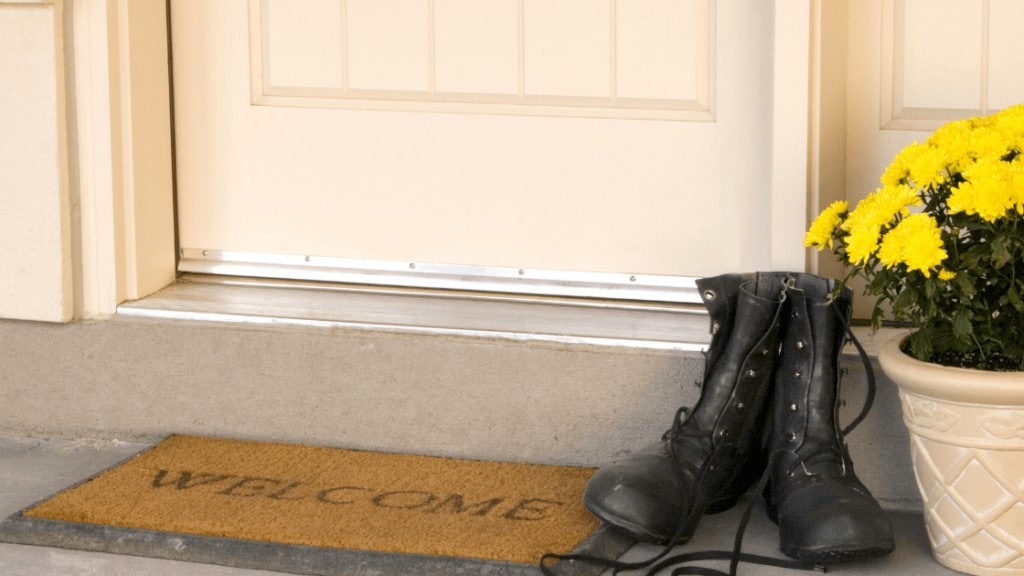
No article on outdoor rugs will be complete without discussing the few minor possible drawbacks. Generally, the advantages of outdoor rugs outweigh the drawbacks and all of the drawbacks can be eliminated by selecting a suitable rug material for your particular weather conditions.
Mold & Humidity
If you live in a dry area, you won’t really run into mold or humidity problems and can use your rug for a very long time before it requires any major cleaning. In fact, infrequent vacuuming may be the only maintenance required! However, if you live in an area where pouring rains are a common occurrence, your rug can absorb some moisture, even if it’s placed under a rain shelter. This problem can be easily dealt with by getting a coarser, synthetic rug, which will dry out very quickly such as welcome mats.
If your wondering if outdoor rugs can be left out in the rain, click here. Can Outdoor Rugs be Left in the Rain?
For more information on door mats, check out our article: Tips for Choosing the Best Outdoor Doormats for Your Needs
Color Loss Caused By UV Exposure
Generally, all outdoor rugs are created with a high degree of UV-resistance in mind. However, it’s inevitable that your rug will lose some of its color vibrancy over the years, due to exposure to UV light. Synthetic rugs are usually more prone to this.
The loss of color caused by UV light can be greatly reduced by making sure your rug is not sitting in a sunny spot. Obviously, single-colored rugs are less prone to a noticeable color vibrancy loss, which is something to consider if your patio receives a lot of sunlight. Another factor to consider is that the wood floor itself will fade a bit after a few months of sun exposure.
If you use a rug that covers only a small area of a patio, a darker spot can eventually form under the rug. This can be solved by moving the rug and the furniture to a different corner of the patio every summer.
